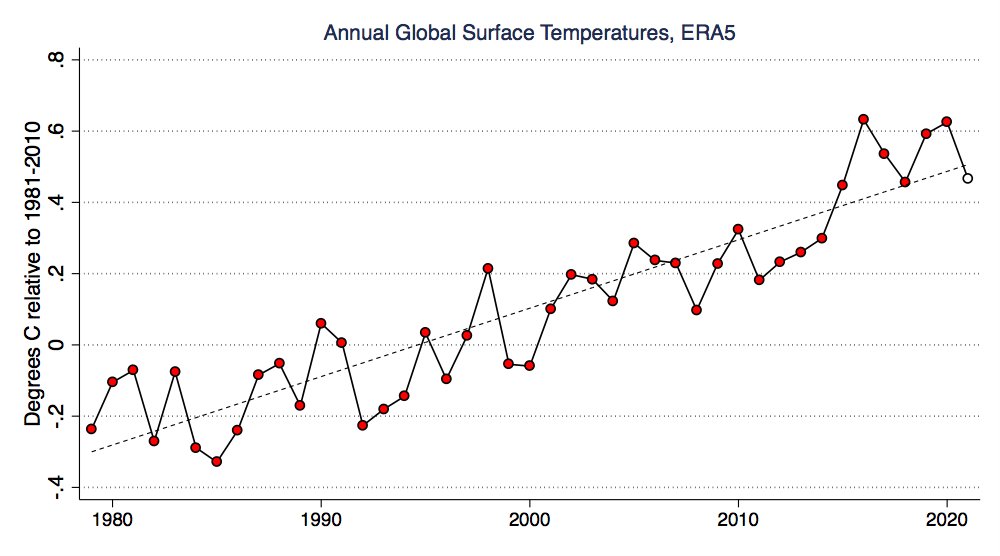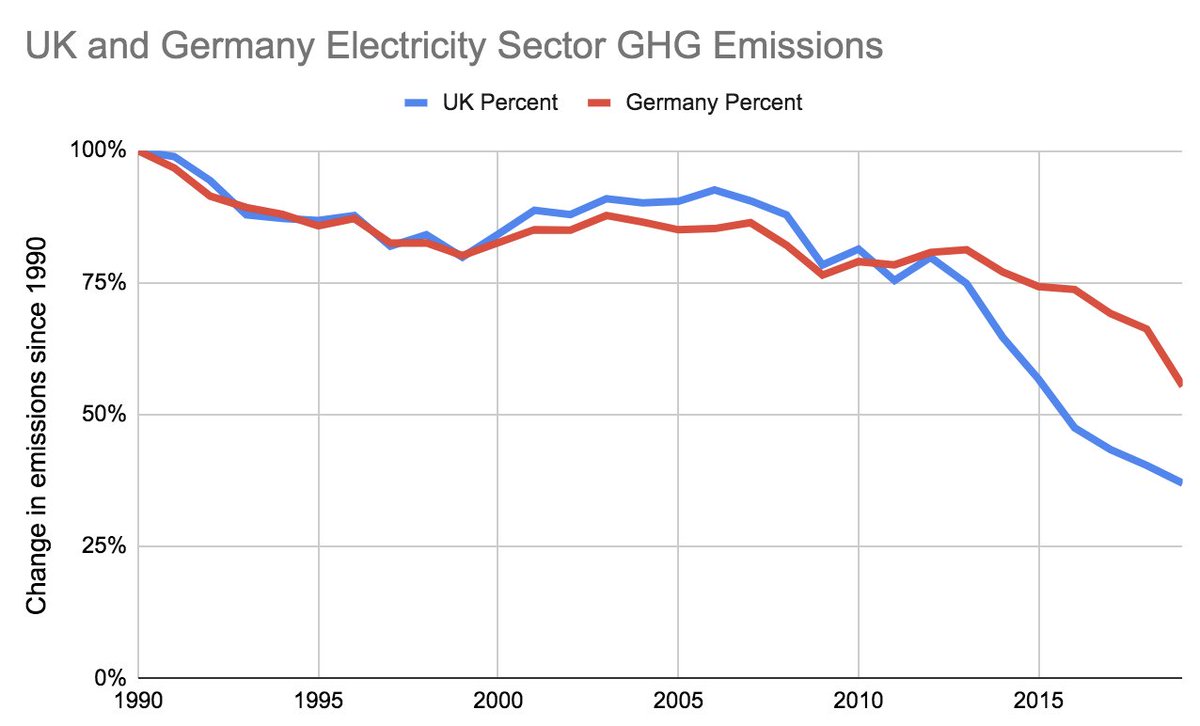
With 2021 annual temperatures (nearly) in, its time for my first prediction of where 2022 will end up!
I find that 2022 is most likely to be the 6th warmest on record, with a very small chance of being the warmest year on record and a small chance of below the 8th warmest.
I find that 2022 is most likely to be the 6th warmest on record, with a very small chance of being the warmest year on record and a small chance of below the 8th warmest.

This uses GISTEMP, and is based on a multivariate regression model using the prior year, past three months, and El Nino/La Nina (ENSO) conditions for the past 6 months and the ENSO forecast for the next 6 months. Here is how it does for past years (red forecast, blue actual): 

Note that I'm estimating December 2021 temperature for GISTEMP for this analysis based on the difference between November 2021 and December 2021 temperatures in ERA5 (which has already reported its December numbers).
My prediction is quite well in line with the @metoffice forecast metoffice.gov.uk/about-us/press…, but notably lower than the latest one by @ClimateOfGavin:
https://twitter.com/ClimateOfGavin/status/1479481326956912645
• • •
Missing some Tweet in this thread? You can try to
force a refresh










